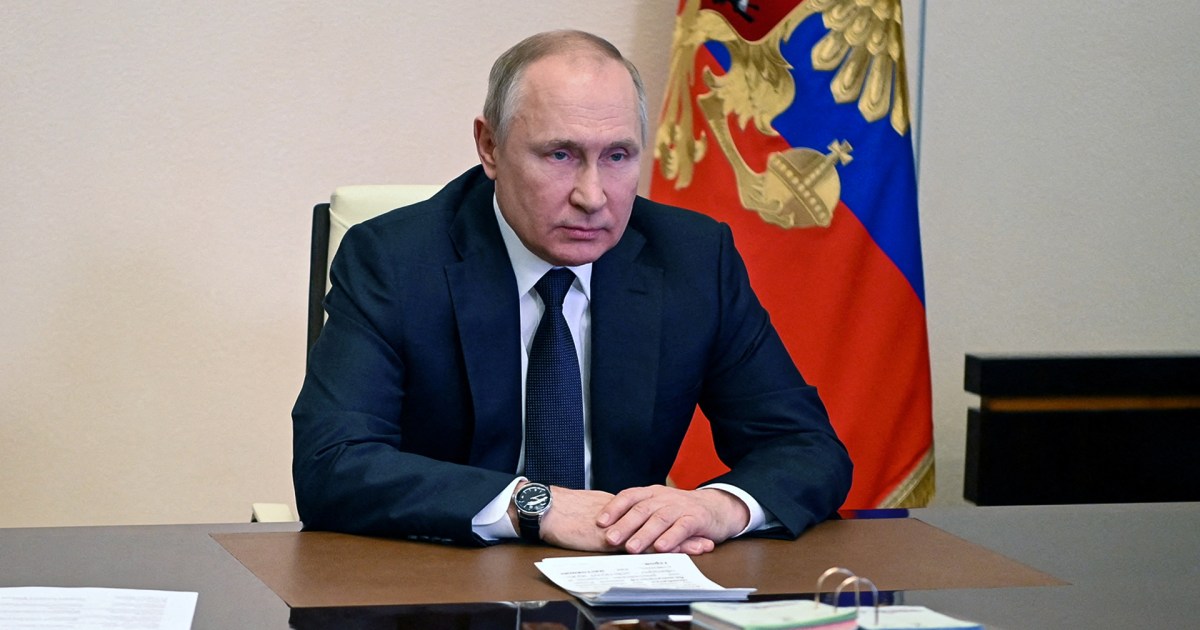Bloomberg published an article stating that Russia appears to have scaled back its targets in Ukraine, after it was forced to withdraw from the areas it attacked at the beginning of the war.
In his article on the site, journalist Leonid Bershidsky said that Russian President Vladimir Putin initially expanded the war front to achieve the stated goals of "disarming" Ukraine and "eliminating fascism" in the country, but later had to withdraw from Kyiv and other regions, and with those withdrawals. The goals, which seemed like euphemisms for changing the Ukrainian regime, receded.
Bershidsky believes that it may be wrong to name the above goals at this stage, given that they are impossible to achieve in the foreseeable future through the resources owned by the Kremlin, so describing them as "dreams" may be more accurate.
On the other hand, the writer says that it appears that Russia’s goals with regard to the geographical areas it seeks to control have expanded. After Moscow’s stated ambitions were limited to the annexation of the Donetsk and Lugansk regions, Russian Foreign Minister Sergei Lavrov recently stated that “the geography has changed.” Russia is now also interested in the Kherson regions in the south and Zaporozhye in central Ukraine.
The writer noted that Lavrov is the highest Russian official who speaks frankly about such plans.
He explained that Lavrov's aforementioned statement, in addition to the foundations laid by pro-Moscow administrations for the organization of referendums in Russian-controlled Ukrainian regions on its accession to Russia, is conclusive evidence that Putin intends to annex the territories completely instead of leaving it in a gray area.
blunder and improvise
Bershidsky says that it is easy to explain the dialectic of reducing Moscow’s goals of disarming and eliminating fascism in Ukraine, in exchange for expanding its goals of territorial control, by assuming that when Putin failed to achieve his goal of changing the Ukrainian government and replacing it with a pro-Kremlin one, he decided to seize the More Ukrainian land instead.
But he believes that this strange war defies easy explanations, and it is likely that any plans developed by the Kremlin these days will be a reaction to the course of events in the war and not strategic plans.
The writer concludes that the Kremlin's expectations are shaped by events on the battlefield, and that every shift in the military situation leads to the development of a new plan, the implementation of which is expected to provide an opportunity for Putin to declare a decisive victory in the war.

